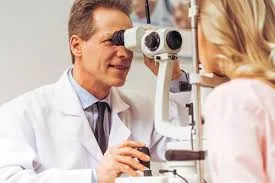5 Signs It’s Time To Visit a Vision Expert

Your eyes do so much more than help you see the world—they’re key to how you connect with and experience life. Yet, eye health is often overlooked until an issue becomes hard to ignore. Staying on top of changes in your vision could make all the difference in addressing potential vision impairment. This article will help you learn when it might be time to schedule an appointment with a vision expert, what to expect from the visit, and how treatment options support your visual health.
Why Eye Health Matters
It’s easy to take good vision for granted, but your eyes are not just about seeing clearly. They also play a role in balance, coordination, and how you process the environment around you. Even slight changes to your vision impact your daily life and overall well-being. That’s why paying attention to potential signs of vision impairment is worth your time—it’s about protecting that everyday quality of life.
Vision Impairment and You
Vision impairment isn’t just about blurry vision; it’s a term that covers a range of issues that can make routine tasks more difficult. Whether it’s difficulty focusing, frequent headaches, or strain when looking at screens, the effects of vision changes can ripple through many areas of your life. Spotting the signs early and visiting a vision expert allows you to identify and address concerns before they escalate.
5 Signs It’s Time to See a Vision Expert
Your eyes play a role in your daily life, making it key to care for their health. Often, changes in vision or discomfort can be gradual and easy to overlook, but they might signal underlying issues. Recognizing the signs early helps protect your vision and start you on the right path toward vision care.
1. Frequent Headaches
Headaches can sometimes be linked to undiagnosed vision challenges. If you’re experiencing persistent headaches, particularly after reading, using screens, or driving, your eyes could be straining to compensate for a vision issue.
2. Blurry or Distorted Vision
If you’re finding it harder to read small text or noticing a sudden loss of focus at any distance, it may be time to check in with an optometrist. Blurry or distorted vision can range from minor to severe and is often a reason to seek professional evaluation.
3. Eye Pain or Discomfort
Healthy eyes shouldn’t feel sore or uncomfortable. Persistent pain, dryness, or a gritty feeling in your eyes could be signaling an underlying issue. Ignoring these symptoms might lead to more significant challenges down the road.
4. Difficulty Seeing At Night
Struggling to see clearly in low-light conditions or noticing glare from oncoming headlights while driving at night can signal complications with your vision. This is known as night vision trouble and is worth investigating further.
5. Changes in Depth Perception or Balance
Our eyes play a central role in keeping our balance and helping us judge distances. If you’re experiencing difficulty gauging how far away something is or feeling off-balance, a visit with an eye care specialist can help pinpoint the issue.
How a Vision Expert Can Help
Optometrists specialize in evaluating, diagnosing, and treating a variety of vision concerns. By thoroughly understanding your symptoms and needs, they aim to offer personalized care tailored to your specific challenges. For those experiencing ongoing vision impairment, treatments such as corrective lenses, vision therapy, or even neuro-optometric rehabilitation may be recommended. Neuro-optometric rehabilitation, for example, is a specialized approach that addresses vision problems linked to the brain or nerves.
Taking Steps Toward Better Vision
While it’s common to put off eye exams if your vision feels “fine,” the true value of seeing a vision expert lies in staying proactive about your eye health. Whether you’re managing current challenges or simply maintaining your visual clarity, addressing concerns early often means finding solutions quickly. If any of the signs above feel familiar, schedule a consultation with your local optometrist and take the first step to feel truly confident in your vision.





